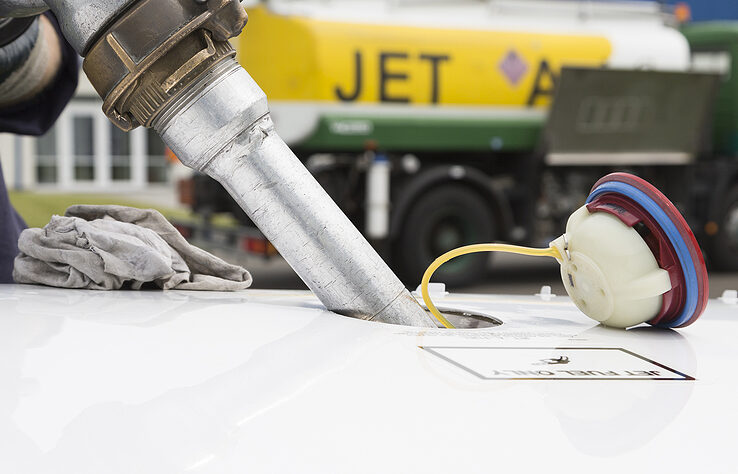A new report from the Consumer Energy Alliance (CEA) warns that inadequate jet fuel pipeline capacity could trigger supply shortages at airports nationwide, threatening air travel and cargo shipping.
The analysis, “Fueling Flight: The Hidden Impact of Jet Fuel Constraints on Consumers,” highlights the growing strain on the nation’s aviation fuel infrastructure as passenger travel and online shopping surge.
“There are 27,000 flights a day that move almost 3 million passengers daily, and over 60,000 tons of cargo,” said CEA president David Holt. “Passenger demand is projected to grow 27 percent to 29 percent at airports over the next decade. We need to make sure we can meet that demand.”
Airlines are preparing for more passengers, and e-commerce retailers expect more orders. While online shopping offers convenience and lower prices than many brick-and-mortar stores, Holt warned that the benefits depend on the aviation fuel supply chain.
Expanding jet fuel pipelines has long drawn opposition from environmental groups. The Sierra Club argues that new pipelines destroy habitats, risk leaks and spills, and perpetuate reliance on fossil fuels instead of “the clean energy that is readily available now.”
In some cases, opposition has turned criminal. In 2022, a Fort Worth man was sentenced to five years in federal prison for attempting to sabotage a Texas pipeline. Hackers have also targeted the system, including the 2021 cyberattack on the Colonial Pipeline that forced airlines along the East Coast to truck in fuel to avoid flight cancellations. A 2022 San Diego pipeline leak led to fuel rationing at the city’s airport for more than two weeks.
CEA’s report warns that when pipelines fail or fuel must be transported by truck or rail, costs rise sharply. The group estimates that for every extra penny per gallon over pipeline transportation prices, airline operating costs increase by $150 million.
“As airlines continue to expand, if we don’t have sufficient infrastructure, the price of aviation fuel goes up, the price of every ticket goes up,” Holt said. “More seriously than affordability is simply not having enough fuel to get to every airport in the United States.”
The administration has endorsed permitting reforms to speed up energy production and pipeline construction, part of its “Unleashing American Energy” initiative. Holt supports the effort, saying policymakers should focus on pipelines and fuel storage capacity.
The aviation industry supports 10 million jobs and accounts for 5 percent of U.S. GDP, according to CEA. Holt noted that even those who never fly or shop online could feel the effect of fuel shortages through their investments, as airlines and distributors are widely held in 401(k) plans and stock portfolios.
“Anything that restricts airline travel has a huge ripple effect across the whole economy,” Holt said. “The president, governors and legislators need to take a hard look to make sure we’re building the infrastructure we need to keep Americans and American cargo moving.”


